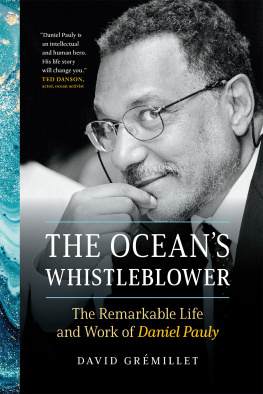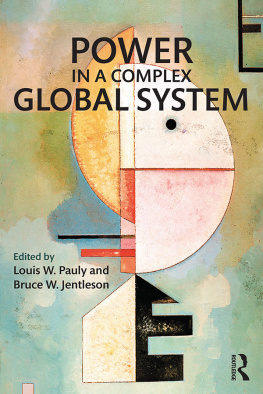For Yvonne and Jacques, who like biographies.
Table of Contents
NOTE FROMTHE TRANSLATOR
All notes included in this book are the work of the author, except those signed TN, for Translators Note. Additionally, for the readers convenience, when relevant, metric measurements in the text are followed by their equivalent in customary units rounded to the nearest whole number. Monetary amounts are in US dollars unless otherwise specified.
IOrigins
A Swiss Childhood
RENE HAD A limp, all because of the bombs. The ones she manufactured in Berlin, then in Frankfurt, and the ones the Allies dropped on her factory one February day in 1944. That year, hundreds of bombers came to pound the German industrial basins, the churches, and the population. Some of the victims were from among the two million French men and women who worked in Germany during the war, willingly or otherwise. Rene crossed the border voluntarily, along with forty thousand of her female compatriots. French history, always careful to emphasize resistance against the enemy, hardly mentions these women, but German scholars have revealed their existence. They rarely went out of conviction, but rather to flee poverty, the law, or their families. The German occupiers did everything in their power to reduce unemployment in the French regions and recruit cheap labor for their factories.
Rene left the French city of Nancy with the promise of training and better work conditionsand a strong desire to get away from her father, Henri Clment. Henri was a brute, a big, straitlaced policeman who had fought at Verdun and who worshipped Marshal Ptain. Shortly before the First World War, he married Marie Kaltenbach, whose Jewish family in Lorraine wanted nothing to do with him. The couple settled in the Champagne region and had nine children. Rene was the fourth, born in 1923. She had her fathers long face and her mothers steely gaze and sharp mind. Everyone agreed that Rene should continue her studies, and her schoolmistress supported her as far as she could. But her father wouldnt hear of it: Shell work like the rest of them, he declared. And so, at the age of fifteen, Rene began her first job as a domestic in Nancy.
When that American bomb came down on her factory in Germany, Rene was hit in the leg. The woman next to her was killed. In the hospital, Rene risked gangrene and amputation, remaining bedridden for six months. During her convalescence, she was given work mending Wehrmacht uniforms. Because of fabric shortages, by the last few weeks of the war, they were made of crepe. As American troops surrounded Frankfurt, she witnessed the nurses discreetly remove their Nazi armbands. Rene survived the fall of the thousand-year Reich only a little worse for wear and returned, limping slightly, to France. For the rest of her life, she would receive a small disability pension from the German state.
She was back at her parents house in Avize by the summer of 1945, when the American military convoys came rolling through on their way east. Ninety miles to the south, in the Yonne, my mother, then fourteen years old, also saw them pass by. She remembers seeing the big Black men with their wide smiles riding atop the trucks. Blacks and whites did not mix in the US Armythe dark-skinned troops formed separate regiments commanded by white officers. These segregated units were generally unarmed and restricted to logistic support. Yet African American soldiers had already sought out combat roles and proved themselves in battle: during the First World War, the Harlem Hellfighters of the 369th Infantry Regiment, aided by the French, demonstrated their fighting prowess at the Battle of the Somme. As a result, the first foreigner to receive the French Croix de Guerre was an African American soldier. In the meantime, many a military ambition went unfulfilled, though some African American soldiers pursued their dreams abroad. The most famous of these was James L. H. Peck: when he was not allowed to become a pilot at home, he went to fight in Spain, beginning in 1936. At the controls of a Russian-made Polikarpov fighter, he brought down a dozen fascist planesincluding two from the Condor Legion, which had been responsible for the attack on Guernicabecoming the first Black fighter pilot in history. In 1941, a change in American law allowed a unit of African American pilots to begin training in Tuskegee, Alabama. After a half-hour test flight during an official visit to Tuskegee, First Lady Eleanor Roosevelt declared, Well, you can fly, alright! The group would go down in history as the Tuskegee Airmen, participating in the Italian campaign aboard their famous Red Tail Mustang fighters.
Winston dreamed of joining them. He was born in 1919 in Little Rock, Arkansas, with the full name Winston R. McLemore. Though he wanted to be a pilot, Winston was a little too impulsive, a little too bad-temperedand most significantly, he drank like a fish. He never joined the ranks of the elite Black airmen, but instead drove trucks during World War II before reenlisting to serve in Korea and Guam.
In 1945, the American soldier was passing through Avize. Winston met Rene, and the details of their brief affair are theirs alone. Rene was open about their relationship and the ones that followed. This was also a way to defy her father, and she did not hide the fact that the child she was expecting would be mixed race. Winston left for Germany, then returned to the United States. Renes father kicked her out of his house. She went to Paris alone and spent a few months working at the Saint-Maurice psychiatric hospital. Then, on May 2, 1946, north of the capital, a little boy was born. She named him Daniel Marc Roger. The life of a single mother, doubly stigmatized by everyday racism, was brutally difficult. Rene worked a factory job and entrusted Daniel, more or less successfully, to the care of various babysitters. The Parisian winter, insufficient ration cards, smoke from the factories, a baby passed from one pair of hands to the nextDaniel was constantly ill. A single photo survives from this period of his life: a wide-eyed toddler with brown hair opens his mouth in delight as he clings to the bar of an antique high chair. The family of two only came together in the evenings and on Sundays.
One summer day in 1948, Rene and Daniel spent a few hours on the banks of the Seine at the Quai de Bercy. A little blond girl played with Daniel while the grown-ups waded in the water. The girl was from Romandy, the French-speaking part of Switzerland, and she had come to Paris with her parents and two older brothers for a family vacation. Much later, Daniel would call them my Thnardiers, but I suggest calling them the G---s. Madame G chatted with Rene, presenting herself as a respectable person from La Chaux-de-Fonds. She had come to Paris with her husband (a man of few words) to visit her sister, who lived in Belleville and owned a caf with her Algerian husband where immigrants drank tea and played dominos. The G---s thought Daniel was adorable, and Rene opened up about how hard life had been for her, how she worried constantly about her sick baby boy and was struggling to raise him alone.
The exact terms of the agreement that followed are unknown. During her long life, Rene would give slightly different versions of it. What is certain is that the G---s, who had recently lost a son Daniels age to meningitis, offered to take the little boy back to Switzerland with them for a few months to give his exhausted mother a break while Daniel recovered his health. Rene accepted the offer, and the G---s went back to La Chaux-de-Fonds with Daniel by steam train, stopping only once, at Besanon. With a mean annual temperature of 43 degrees Fahrenheit, La Chaux-de-Fonds is an austere town spread along the floor of a Swiss valley 3,280 feet above sea level. With its tidy grid-like layout, it reminds me of a military base, its large buildings sporting endless rows of windows, like so many eyes watching the towns watchmakers toil within. Largely working class and politically communist, the towns residents have long fought to secure labor rights, as well as many progressive social and cultural policies that can still be seen today.









![Daniel D. Gutierrez [Daniel D. Gutierrez] - Machine Learning and Data Science: An Introduction to Statistical Learning Methods with R](/uploads/posts/book/119585/thumbs/daniel-d-gutierrez-daniel-d-gutierrez-machine.jpg)



